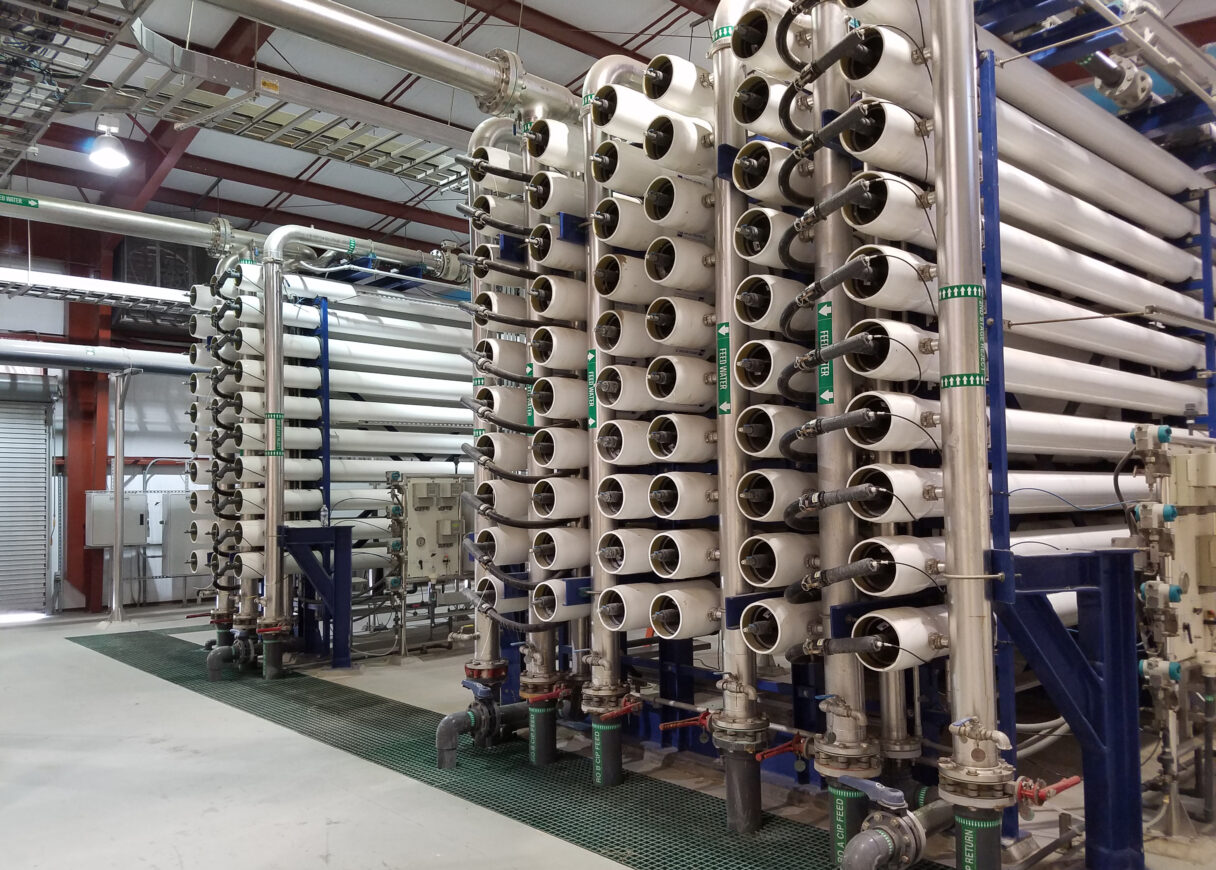Freese and Nichols supports our staff in a variety of ways to grow the firm’s capacity, and governs with strategic, sustainable, socially responsible decision-making and internal accountability.
Accountability at the Highest Levels
For many years, Freese and Nichols has implemented elements of Corporate Social Responsibility throughout the firm in areas such as our strategic plan actions, group Annual Operating Plan actions, corporate-sponsored committees, funding of employee training and development, benefits we offer staff, and more. Our leadership operations are designed to support these initiatives in a variety of ways with committees and regular reviews and updates to some of our most impactful decisions for our staff, clients and communities.
Being a Sustaining Firm is a Key to Our CSR Efforts
Part of our overall CSR program goal is to make sure our company remains a healthy, ethical business and viable long-term. Managing our company well is something our leadership has been dedicated to for 129 years. Our Board of Directors is focused on keeping our company a sustaining firm to provide our employees challenging and rewarding career opportunities, our clients meaningful and impactful projects, and our community’s reliable growth for their future.
The Board approves our yearly Strategic Plan ensuring that we are moving in the right direction for continued growth. Additionally, members of our Board and Lead Team personally invest their time to serve as executive sponsors, leaders, or participants of many of the individual CSR programs and initiatives, including:
- Strategic Planning Committee
- Sustainability Committee
- Funding Committee (Corporate Giving)
- Innovation Committee
- Safety Committee
- Employee Resource Groups
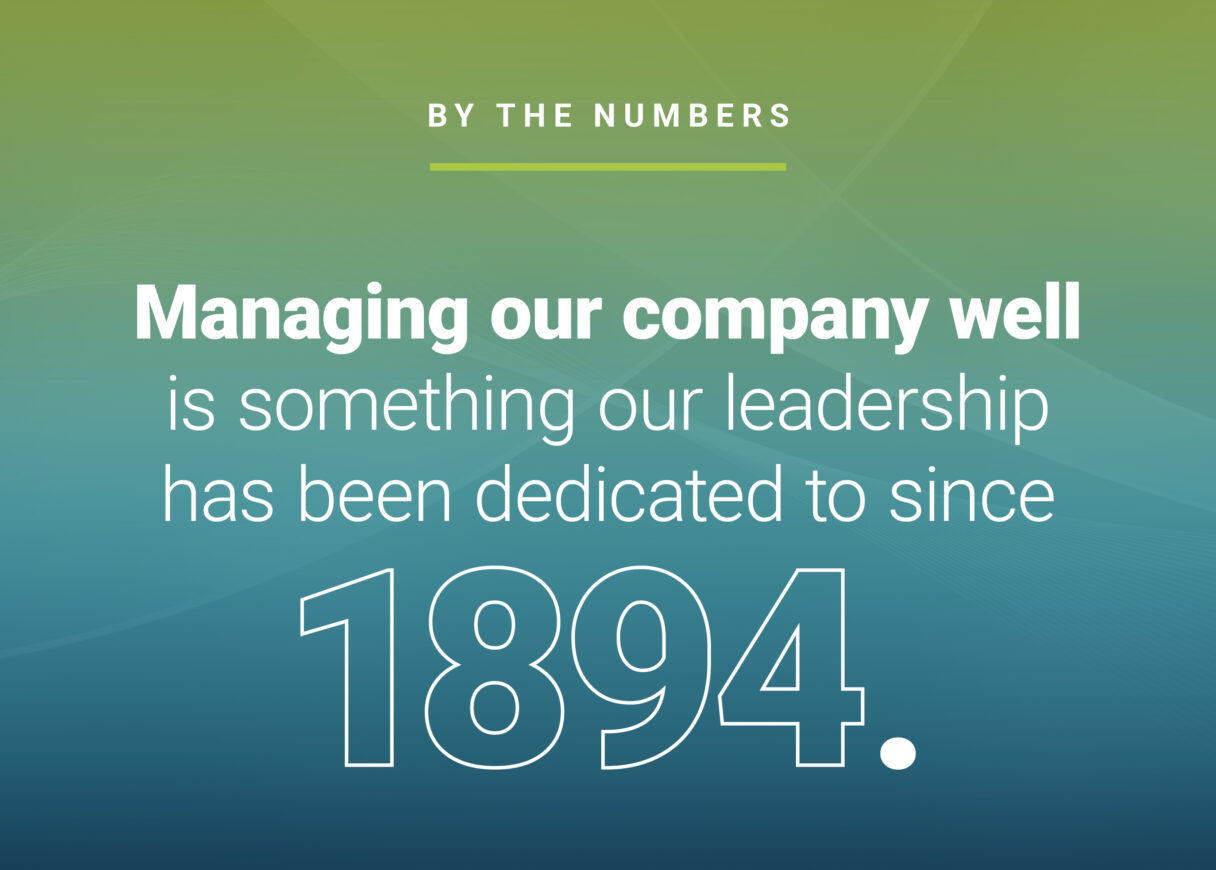
Board-Run Committees for Continued Evolution
Several Board-run committees are dedicated to keeping our firm continuously evolving into our next century. Explore their roles below.
-
Governance and Nominating Committee
The Governance and Nominating Committee ensures that Freese and Nichols' governance systems and procedures are functioning well, and suggests improvements. They oversee efforts addressing corporate responsibility and sustainability, regularly assessing the impact of environmental and social issues on our firm. This committee also monitors our firm's reputation risk exposures, so that we may remain sustainable as we grow.
-
Ownership Transition Committee
The Ownership Transition Committee helps maintain a consistent refresh of our ownership base so that we have a long-lasting continuity of shareholders and future leaders of the firm. This committee reviews the modeling of anticipated purchases and divestitures of stock and makes recommendations to management and the Board on anticipated funding requirements. They also oversee the yearly nomination and election of new Principals and Associates.
-
Audit Committee
The Audit Committee helps ensure Freese and Nichols' financial stability and solvency by overseeing the annual independent audit and our relationship with our external auditor. This committee reviews internal controls and major financial risk exposures, and oversees the management of the company's investment activities.
-
Executive Compensation and CEO Review Committee
The Executive Compensation and CEO Review Committee reviews and evaluates compensation programs that impact the executive team. This committee sets goals for our CEO, conducts his or her yearly evaluation and determines his or her merit increase/bonus. This committee advocates for our firm's needs to maintain stability and growth, and ensures that the CEO's goals align with our mission, values, and strategic plan. Our current CEO, Brian Coltharp, has annual goals related to our Corporate Social Responsibility initiatives that maintain or improve our quality service, firm growth, recruiting, retention and leadership.
-
Risk Management Committee
The Risk Management Committee oversees several areas, including claims, insurance, conflict of interest, and licensing. This committee helps our teams to identify or work through any issues that may arise, helps maintain insurance requirements that meet our clients' needs and our standards for doing business, helps manage conflict of interest disclosures to ensure ethical business practices, and helps maintain proper licensing requirements for the states we work in. Additionally, this group helps maintain resources for collaborative project delivery at our firm, helping to foster a collaborative relationship between the owner, engineer and contractor for projects with increasing complexity.
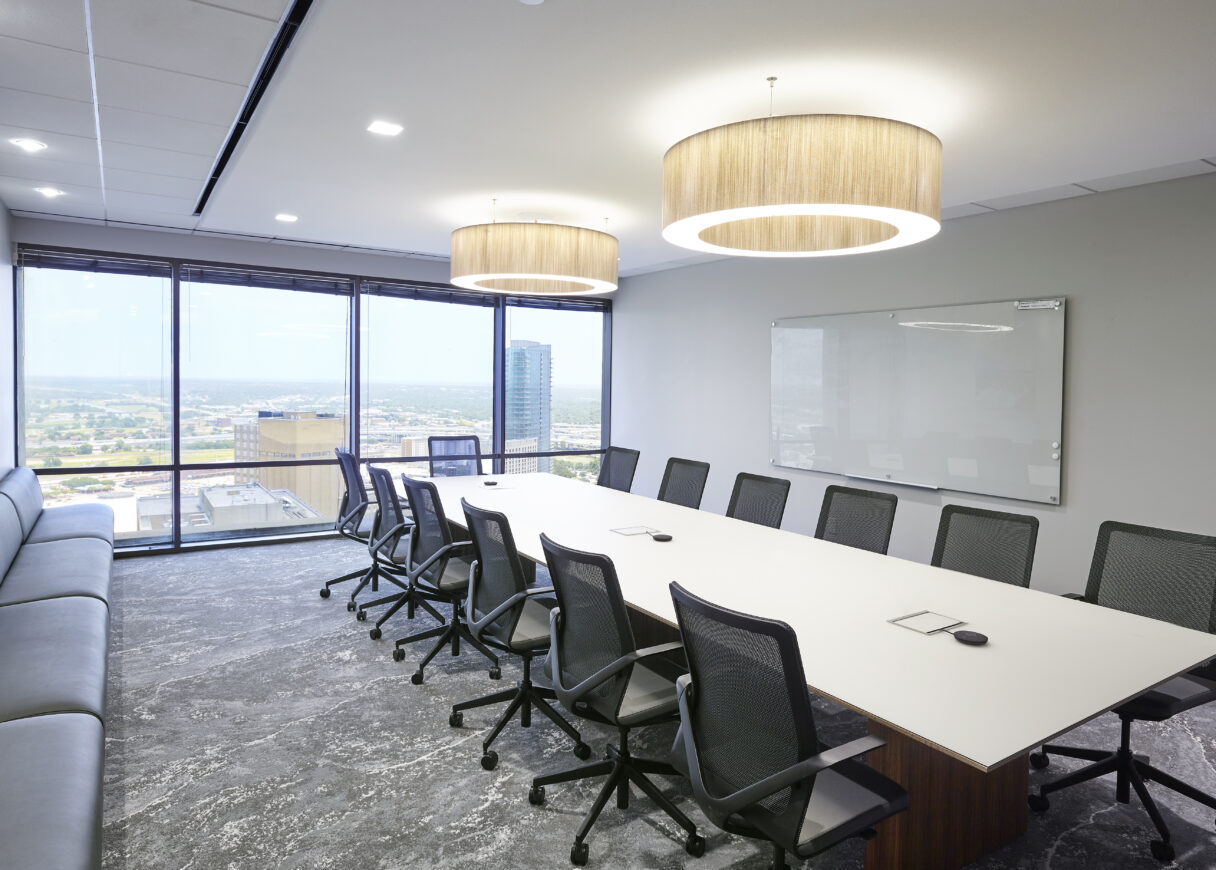
Building Capacity
We continually find ways to equip our staff with technical and management tools to allow for growth as a well-rounded organization. Expanding our team’s capabilities and staffing allows our firm to remain a sustainable resource for gainful employment, successful client projects and the stewardship of our environment.
Building Capacity Through Professional Development
Our founder, Major John B. Hawley, was adamant about the value of education and building our staff capacity from within. Still an integral part of Freese and Nichols’ culture, professional development is highlighted by our first LEADS value: Learn Continuously.
Below are some of the ways we support our team’s professional development.
-
Professional Organizations
One way we support our staff is through their involvement and connectivity to their appropriate professional organization. Understanding the trends and new innovations through these organizations is valuable for both our clients, our communities and our employee’s careers. We pay for our staff to be members of at least two national, state or local organizations related to their technical area.
-
Technical Licenses, Registrations and Certifications
From a capacity standpoint, we want to see our employees grow their reputations as technical experts, both locally and nationally. As a result, Freese and Nichols pays for our staff to obtain their various technical licenses, registrations or certifications. We allow time for staff to study for their exam with one paid day off, and reward staff with a bonus when they pass the exam.
We feel that by supporting our teams in their continued technical growth, we are actively giving back to our our employees, our clients and our profession. Here are just a few examples of the types of licenses, certifications and registrations that we support: Licensed Engineer (P.E.), Registered Architect (R.A.), American Institute of Certified Planners (AICP), Certified Construction Manager (CCM), Landscape Architect (RLA), Professional Geoscientist (PG), and Certified Public Accountant (CPA).
-
Individual Development Plan (IDP)
The Individual Development Plan (IDP) program began in 2002, and is another example of how we support our profession and our employee’s career goals. During the IDP review, an employee meets with his or her manager to mutually discuss and assess the employee’s career goals and development needs. Not only does this allow managers to look for ways that employee goals can align with overall organizational plans in the short-term, but it also provides an understanding of how an individual's goals can fit into the long-term vision that FNI has for its own future. This is a mutually beneficial program where the both employee and firm goals can be aligned and achieved.
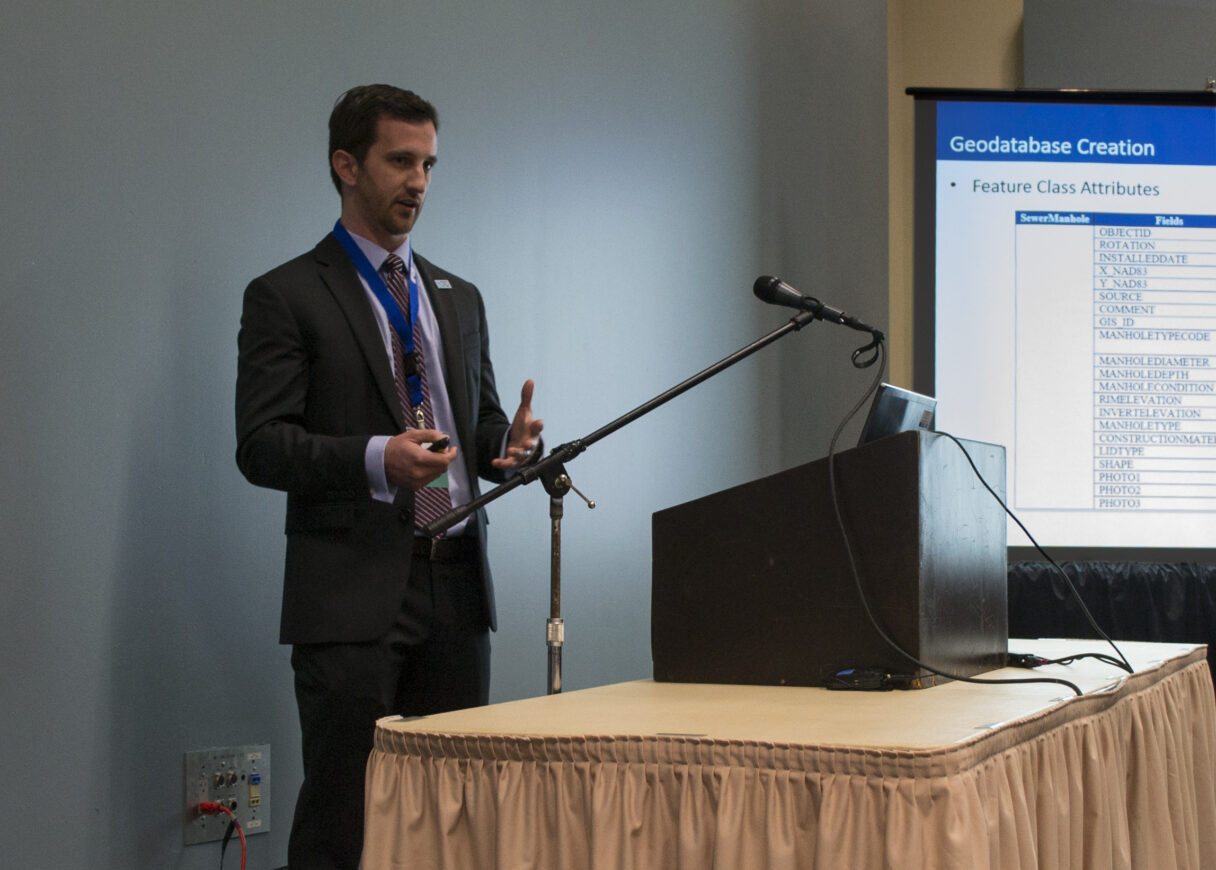
Building Our Capacity and Quality Through our Technical Excellence Program (TEP)
Freese and Nichols developed our Technical Excellence Program (TEP) to have a systematic approach to continuously improving the level of technical quality for each project we perform. The program has become critical to our ability to “Deliver Quality” and “Learn Continuously,” part of our LEADS Values.
TEP teams are made up of all technical employees within a given discipline and often within the full practice. They meet on a regular basis to exchange information and provide training. TEP teams also maintain repositories for data, software, processes, tools, lessons learned and innovations relevant to the discipline.
Focusing employees of the same discipline for information sharing further supports training and mentoring staff across the company, which in turn builds our technical capacity to deliver quality and innovative solutions for our clients. There are 18 TEP teams within the 13 Practices in the Technical Excellence Program.
Additionally, there are seven Technical Committees that report up to the team of Lead Technical Professionals (LTPs) who run the TEP teams. These committees are teams of advanced experts within a particular technical field that are charged with advancing the capabilities of the company in that area. The committees work to develop standards and training programs, and to facilitate and improve the use of technology across the company within that technical area. Any practice that has an interest can have representation on appropriate committees.
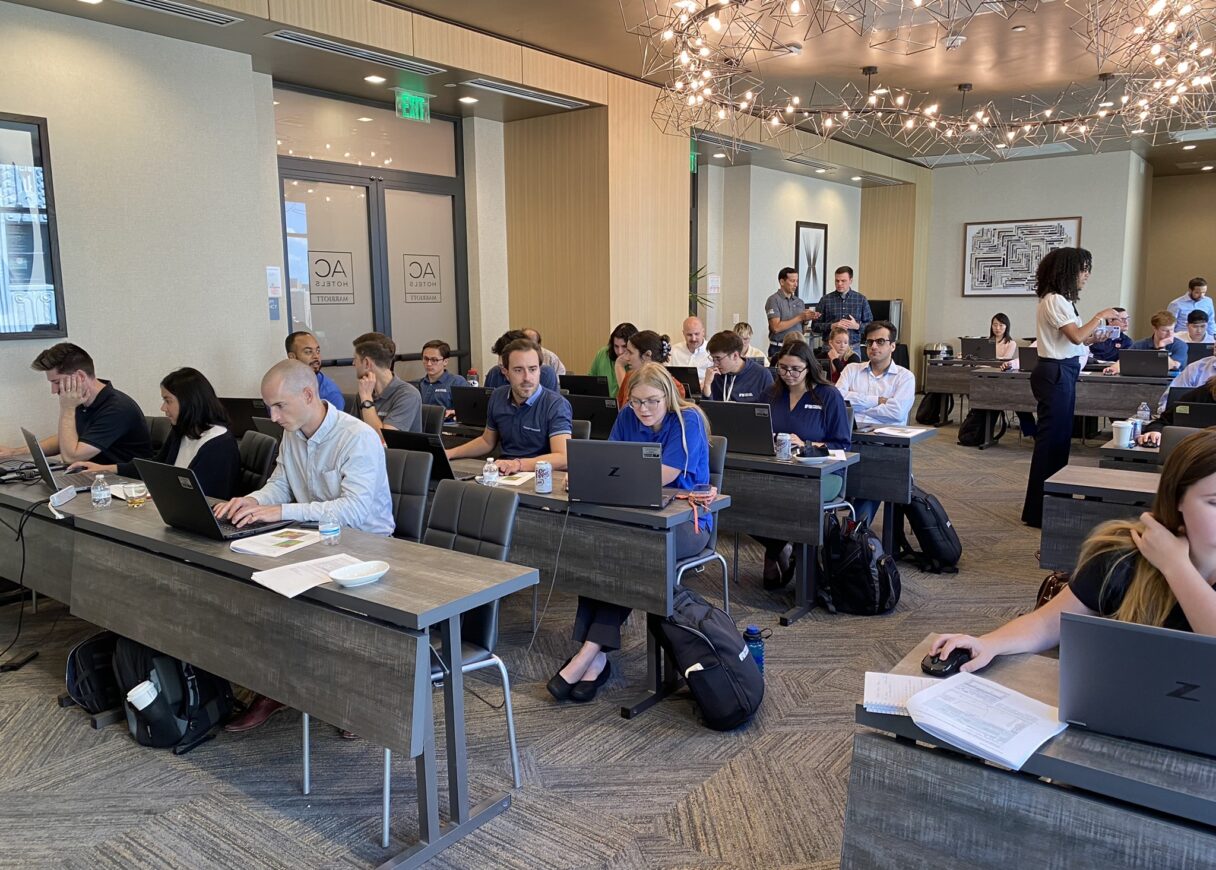
Building Our Capacity Through Internal Training
For more than 20+ years our Freese and Nichols University (FNU) has provided classes and training session for our staff, as well as to our clients to help them with skills-building and best practices – all with the aim of improving what we deliver to our communities, teaching managers how to make FNI a great place to work for our employees, and giving our staff the opportunity to grow their skills. In 2022 alone, Freese and Nichols University offered more than 200 classes addressing the categories in our CSR framework: Environment, Social, or Capacity.
Environmental Sessions
In order to provide top quality service to our clients, we offer our staff technical trainings in a range of environmentally-related topics that span engineering, planning and management. We have offered staff webinars on climate resiliency, PFAS, rivers and infrastructure, and more.
DEI Sessions
Our DEI committee conducted listening sessions over the last two years to gain feedback from our staff about how we can make Freese and Nichols a more inclusive and diverse workplace. The outcomes were rolled into a DEI roadmap that is being implemented today.
Wellness and Safety Sessions
Wellness and safety sessions have included topics from Diabetes 101 to Financial Wellbeing, and Confined Space Training to Fall Protection best practices at job sites.
Soft Skills Sessions
As staff progress in their careers, we offer courses that expand soft skills. Classes such as Civil Treatment Crucial Conversations, Emotional Intelligence, Presentation Skills, and Introduction to Leadership help provide employees with the tools they need to enhance their interactions with clients and internal teams.
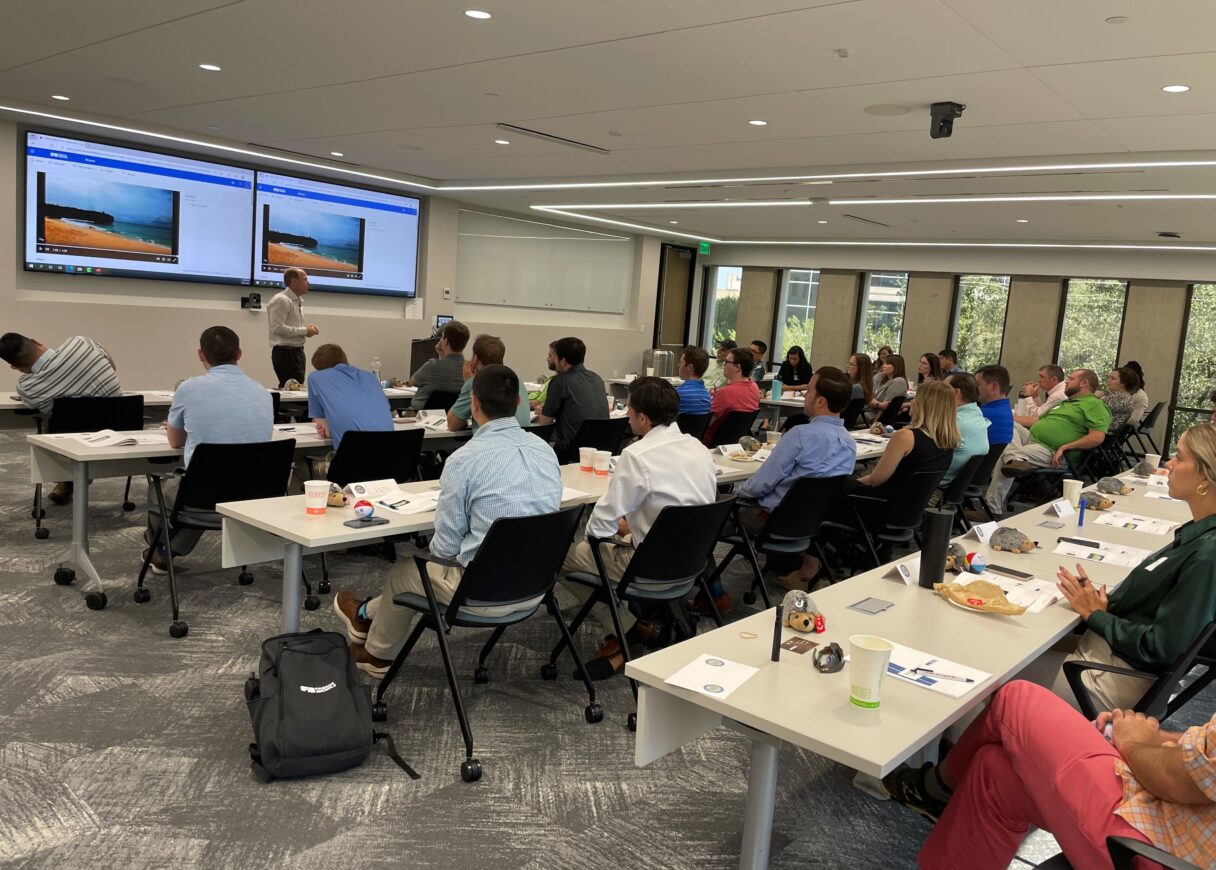
Building Our Capacity Through Mentoring
Since 2010, Freese and Nichols has offered a mentoring program for our employees to learn from one another about various technical skills, management skills, and sales and marketing skills. Our mentoring relationships can provide pragmatic information about navigating the “real world,” and can go a long way in helping staff reach the next level of their career.
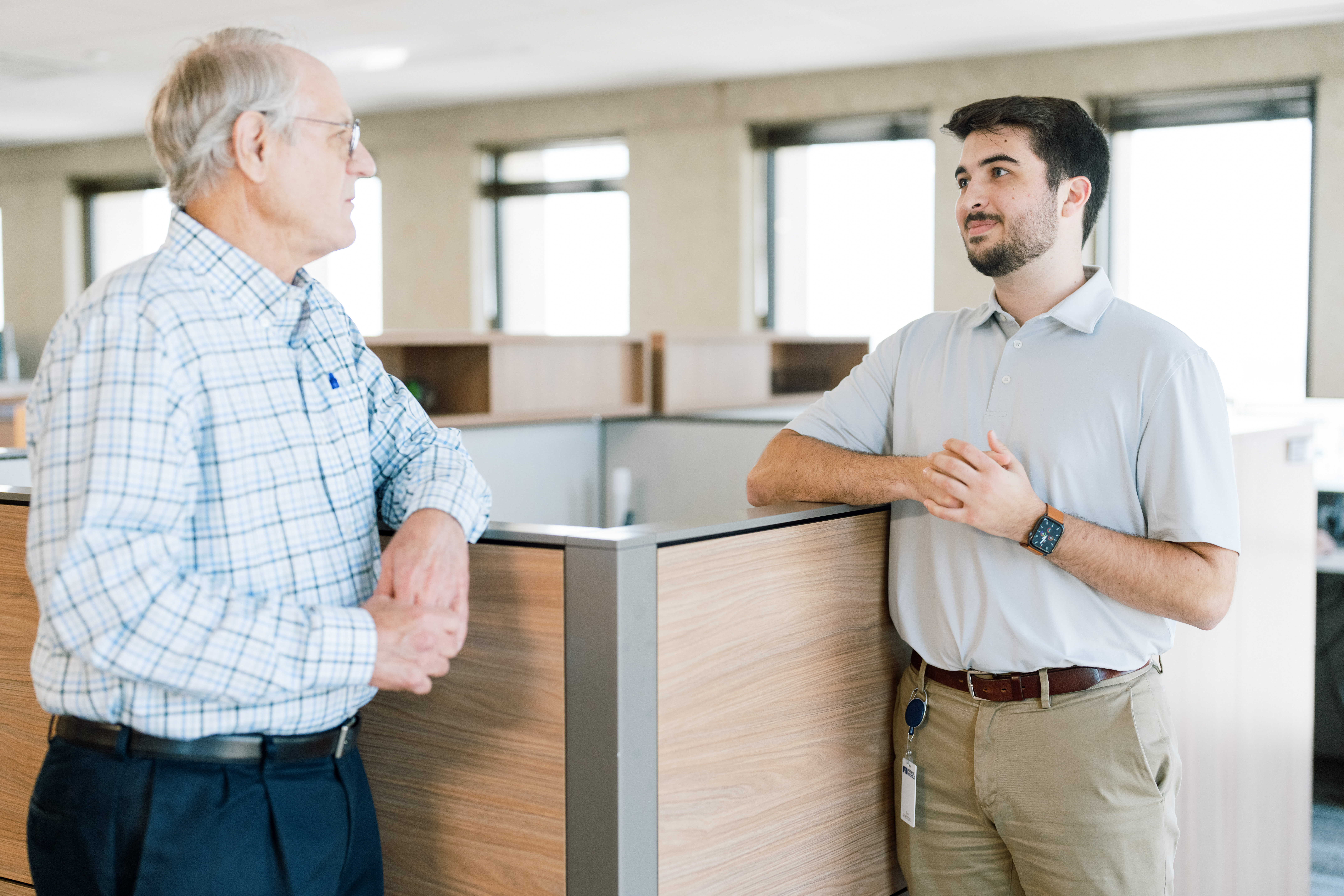
Building Our Capacity Through Research and Development
Freese and Nichols devotes as much as $100,000 each year to fund numerous research and development projects, each of which is intended to assist employees in learning and developing new innovative ideas. This helps maintain our firm’s position as a technical leader in the industry. The program is organized and run by the Lead Technical Professionals.
